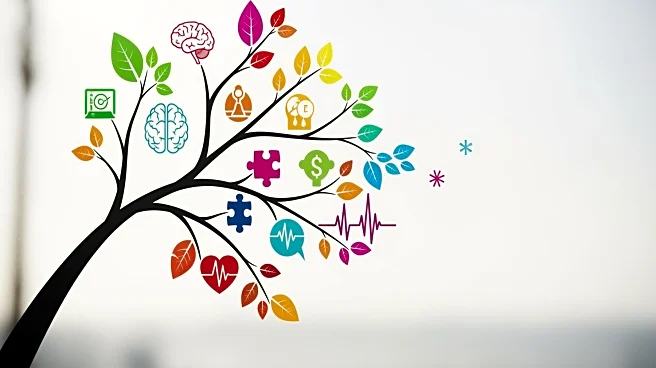What's Happening?
An excerpt from Virginia Giuffre's forthcoming memoir, 'Nobody's Girl: A Memoir of Surviving Abuse and Fighting for Justice,' has been released, detailing her experiences with Jeffrey Epstein and Ghislaine
Maxwell. The memoir recounts a 2021 trip to the Louvre Museum, where Giuffre prepared to testify against French modeling agent Jean-Luc Brunel. Giuffre, who was a prominent accuser in the Epstein case, alleged that she was trafficked to Prince Andrew by Epstein. The memoir, co-authored by Amy Wallace, describes the abuse Giuffre faced as akin to a 'modern Handmaid's Tale,' including being asked to carry a child for Epstein and Maxwell. Giuffre died by suicide in 2024, and her family has dismissed conspiracy theories surrounding her death.
Why It's Important?
The release of Giuffre's memoir excerpt sheds light on the extent of abuse within Epstein's network, highlighting the systemic exploitation and manipulation faced by victims. The memoir's revelations could influence public perception and policy regarding human trafficking and sexual abuse. It underscores the importance of holding perpetrators accountable and the need for robust support systems for survivors. The memoir also touches on the legal and societal implications of high-profile figures being implicated in such cases, potentially affecting public trust in institutions and prompting calls for reform.
What's Next?
The full memoir is set to be released on October 21, which may lead to further public discourse and potential legal actions against individuals involved in Epstein's network. The memoir could prompt renewed scrutiny of those previously associated with Epstein, including Prince Andrew, and influence ongoing investigations. Advocacy groups may use the memoir to push for stronger anti-trafficking measures and support for survivors. The release may also lead to discussions about the role of powerful individuals in perpetuating abuse and the need for systemic change.
Beyond the Headlines
The memoir's release highlights the ethical and cultural dimensions of addressing sexual abuse and trafficking. It raises questions about the responsibility of media and society in supporting survivors and ensuring justice. The memoir may contribute to long-term shifts in how abuse cases are handled legally and socially, emphasizing the importance of survivor narratives in shaping public policy. It also underscores the need for transparency and accountability in cases involving high-profile individuals.










